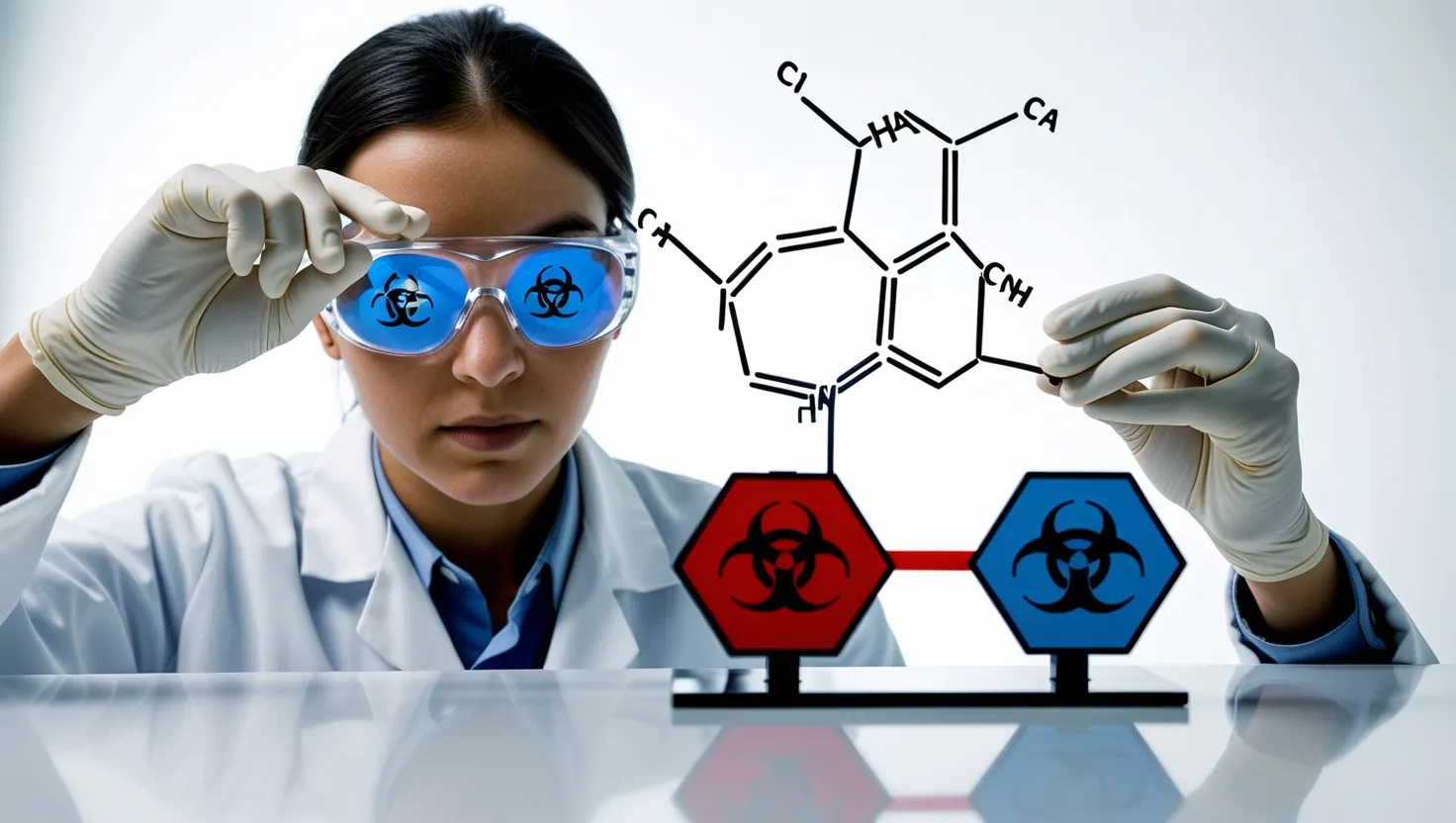The Novichok incident in Salisbury sent shockwaves through the international community, not just for its brazen nature, but for the perplexing chemical mysteries it left in its wake. As a toxicologist who has spent years studying organophosphates, I found myself drawn into a scientific rabbit hole that challenged much of what we thought we knew about these deadly compounds.
Let’s start with the basics. Novichok agents are a family of nerve agents developed by the Soviet Union in the 1970s and 80s. They’re considered some of the most lethal chemical weapons ever created, with potency up to 8 times that of VX gas. But the samples recovered from Salisbury displayed some truly bizarre properties that have left many of us scratching our heads.
First, there’s the issue of persistence. Novichok agents are designed to break down quickly after use. Yet traces were found weeks later on seemingly random objects around Salisbury. How did it remain stable for so long in the environment? This flies in the face of everything we understand about the chemical structure of these compounds.
Then there’s the selectivity. The victims suffered severe symptoms, yet first responders who came into contact with contaminated items experienced little to no effects. This level of precision targeting shouldn’t be possible with a nerve agent that operates on a molecular level. It’s as if the compound could distinguish between individuals - a capability that defies our current understanding of chemical weapons.
But perhaps most baffling are the isotope ratios found in residue samples. These didn’t match any known Novichok variants. Instead, they bore similarities to experimental compounds developed under classified programs decades ago. How did signatures of these obscure research chemicals end up in an assassination attempt in 2018?
“The most merciful thing in the world, I think, is the inability of the human mind to correlate all its contents.” - H.P. Lovecraft
This quote keeps coming to mind as I pore over the conflicting data. Are we dealing with a next-generation chemical weapon specifically engineered to evade detection? Or have we stumbled upon some fundamental gap in our understanding of organophosphate chemistry?
I’ve spoken with colleagues who propose wildly different theories. Some believe this reveals the existence of a covert weapons program operating outside international oversight. Others suggest we’re seeing the unintended results of legitimate chemical defense research pushed to its limits. A few even whisper about the possibility of extraterrestrial origins, though I hesitate to entertain such notions.
What do you think? Could there be a mundane explanation for these anomalies that we’re overlooking?
Regardless of the cause, the implications are deeply concerning. Our current systems for monitoring and verifying chemical weapons may be woefully inadequate if substances like this can slip through undetected. And if a state actor has developed the capability to engineer nerve agents with such precise effects, it represents a paradigm shift in chemical warfare.
As analytical techniques improve, we’re likely to uncover even more inconsistencies. Each new finding seems to raise more questions than answers. The scientific community is divided, with heated debates erupting at conferences and in journal articles.
I find myself lying awake at night pondering the possibilities. What if everything we thought we knew about the chemical behavior of these compounds is wrong? Could there be fundamental principles of molecular interactions that we’ve failed to grasp? The potential ramifications extend far beyond this single incident.
“The most exciting phrase to hear in science, the one that heralds new discoveries, is not ‘Eureka!’ but ‘That’s funny…‘” - Isaac Asimov
This sentiment captures the mixture of fascination and unease I feel as I delve deeper into the Novichok mystery. Every unexpected result, every baffling data point, could be the key to unlocking a new realm of scientific understanding. But it could also represent a grave threat to global security.
I’ve taken to calling this web of chemical contradictions the “Novichok Delta Paradox.” Delta, for the mathematical symbol representing change or difference. Because with each new finding, we’re forced to shift our perspective, to re-evaluate long-held assumptions.
The paradox extends beyond just the realm of chemistry. It touches on issues of international law, ethics in scientific research, and the delicate balance between national security and global cooperation. How do we advance our understanding of these compounds without crossing the line into banned weapons development?
As scientists, we’re driven by an insatiable curiosity to unravel the mysteries of the natural world. But cases like this force us to grapple with the potential consequences of our discoveries. What responsibility do we bear for how our research might be applied?
I often wonder what the original developers of the Novichok agents would think of this current conundrum. Did they anticipate the far-reaching implications of their work? Or were they, like us, simply pushing the boundaries of chemical knowledge without fully grasping where it might lead?
“With great power comes great responsibility.” - Stan Lee
While this quote may seem cliché, I believe it encapsulates the ethical dilemma at the heart of the Novichok Delta Paradox. As our understanding of these compounds grows, so too does our ability to manipulate them in ways that could be devastating if misused.
So where do we go from here? How do we balance the pursuit of scientific knowledge with the need to prevent the proliferation of chemical weapons? Can we find a way to study these anomalies without inadvertently advancing weapons technology?
These are questions that keep me up at night, and I suspect I’m not alone. The Novichok Delta Paradox represents a critical juncture for the scientific community. How we choose to address it will have profound implications for the future of chemical research and global security.
As I continue my work, I’m reminded of the dual nature of scientific discovery. Every breakthrough carries with it both promise and peril. It’s up to us to navigate this treacherous landscape with wisdom and foresight.
What are your thoughts on this complex issue? How can we ensure that our pursuit of knowledge doesn’t inadvertently lead to devastating consequences? I believe that open dialogue and international cooperation are crucial as we grapple with these challenges.
The Novichok Delta Paradox may have begun with a single incident in Salisbury, but its ripple effects will be felt for years to come. As scientists, policymakers, and global citizens, we all have a stake in how this mystery unfolds. The choices we make today will shape the future of chemical research and international security for generations.






